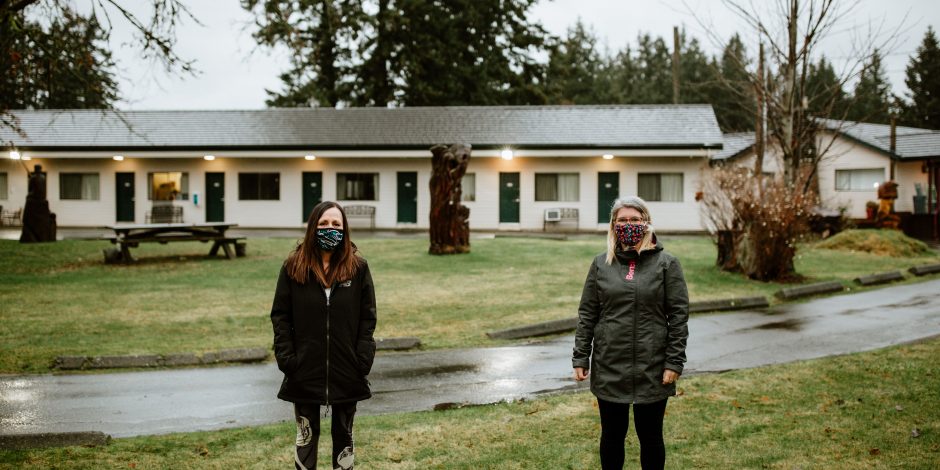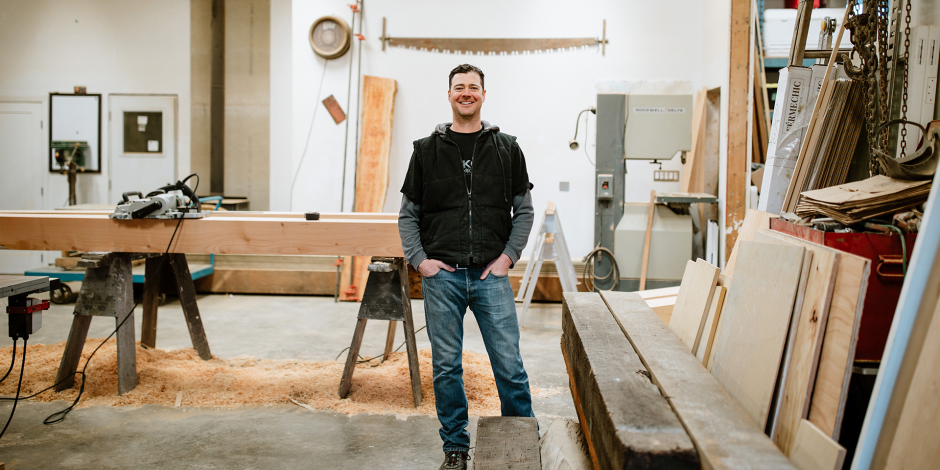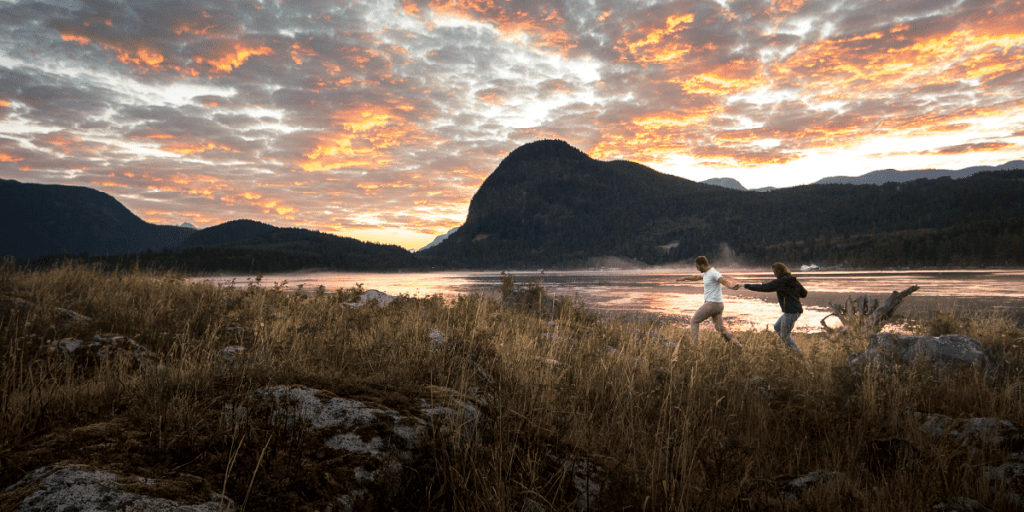There are more than 100 people living without shelter on the streets in Campbell River, its regional parks, and in the small enclaves from Elk Falls to Oyster River. In 2018, the community counted 81 people experiencing absolute homelessness. We know that the number of our neighbours without homes is growing and the pandemic has only exacerbated the reality of living without shelter. At the Campbell River & District Coalition to End Homelessness, we see the positive outcomes of collaboration every day.
When a fire displaced 47 people in April 2019, Coalition members Sasamans Society and John Howard Society, along with the Ministry of Social Development and Poverty Reduction, worked daily to provide emotional, financial and housing support to residents re-located to the Discovery Inn. “I and my colleagues were at the hotel every day for almost three months, supporting folks feeling stressed and unsure of their future,” says Alynne Neault of Sasamans Society and member of the Coalition Leadership Team. “That is a long time to spend in a hotel. Every time they were up against an eviction, because of insecure funding, tension and fear rose.”
Shawn Koopman from EMS was a great help the first week and Wayne Bair of the RCMP popped by a couple of times a week to offer support. The community really came together with donations and Laichwiltach Family Services really stepped up with storing and sorting the donations. Almost half the displaced people were independently housed, including some in Linda’s Place (a Campbell River Head Injury Society building) and at least one person chose to stay outside.
These agencies, with Coalition support ensured that funding was made available so that evacuees were not discharged into homelessness before BC Housing could purchase the Heritage River Inn to house this group. It has since been renamed Riverside Village and many individuals and families have secure and affordable housing. Alynne shared that “Oone family that received a unit at Riverside were able to be re-united with their children because they now had secure and appropriate housing.” The site is also large enough for further development in the future – another project the Coalition encourages BC Housing to pursue.
The Coalition coordinated initiatives to address the needs of our priority populations throughout the COVID-19 pandemic. We were deeply involved in the very early days to advocate for showers, hand washing and toilet facilities as agencies and public places closed or had limited access. We distributed information regarding where and when to access meals, clothing, hygiene, and other support. We ensured members were aware of available funding and assisted the development of ad-hoc committees for food security services. We continue to advocate for further housing and resources in our community such as the redevelopment of the former Rose Bowl, and including supportive housing, densification of housing and amending bylaws to allow for secondary suites.
A Bridge to Housing program at the former Rose Bowl is another result of community collaboration the Coalition champions. We participated in the city’s downtown issues round table discussion and, when BC Housing purchased the Rose Bowl, we were able to liaise with them and VIMHS to establish criteria for tenants that met both the needs of those experiencing homelessness and address the downtown resident and business concerns. This program supports 20 residents, stabilizing their lives and developing good neighbour skills, so they and 30 others can integrate seamlessly into the community at 580 Dogwood – a BC Housing project opening in early 2021.
Another result of community collaboration is the Mobile Outreach Unit for Housing and Support Services (The Moose), which is a program of KDC Health with partnerships with Island Health and the Campbell River & District Division of Family Practice. Services on board the mobile unit, at present, include social work, counselling, nursing (primary care nursing and connection to positive wellness), a physician or nurse practitioner for urgent primary care (including COVID screening and swabbing) and addiction treatment. The Moose parks in locations that are easily accessible to people without fixed addresses and at specific times throughout the week. Staff, volunteers, and participating professionals serve as vital links to provide care and support, as well as a compassionate ear, a hot beverage, or a pair of socks. Housing and income support outreach workers often meet the Moose to connect with individuals that need their specific services. The Moose helps community agencies meet people where they are when accessing geographically dispersed offices with limited hours is not possible for them.
What our member and advisory agencies and our government partners have in common is a desire to create compassionate, safe, and respectful neighbourhoods and communities that reflect our belief that housing is the first step to individual wholeness and success. Our cCoalition is committed to working across jurisdictions, communities, agencies, Indigenous groups, and business associations to fulfill these needs, so all our residents have homes, safety, security, and connection. Pat McKenna of Habitat for Humanity and another member of the Leadership Team states “we, at The Campbell River and District Coalition to End Homelessness, are always working diligently to include all of our partners to support our most vulnerable populations. We are continually exploring dialogue to ensure a safe, vibrant, and healthy community where everyone is housed. The Coalition works as consensus and all members of the leadership team work in concert to lead the community response to housing insecurity and homelessness.”
For more information visit: www.crhousing.net





